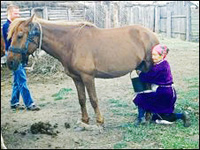 Researchers working in Northern Kazakhstan, on the steppes of Central Asia, have found evidence the Botai culture, living there 5,500 years ago, were likely the first known civilization to domesticate wild horses.
Researchers working in Northern Kazakhstan, on the steppes of Central Asia, have found evidence the Botai culture, living there 5,500 years ago, were likely the first known civilization to domesticate wild horses.
Bits and bridles leave distinct parallel wear lines on teeth, and marks on skulls taken from Botai archeological sites, as well as pottery fragments with the residue of fermented mare’s milk, indicate that Botai horses were bridled for transportation and kept as a food source, according to the March 6 issue of Science magazine.
The Botai people lived in pit houses dug into the ground. Their excavated homes were littered with bones, 90 percent of them from horses. Some Botai village sites also contain remains of corrals and leather tools resembling lassos.
People in Northern Kazakhstan still herd horses on horseback and drink an alcoholic brew called koumiss that is made from mare’s milk.
Previous evidence for the domestication of horses dates to around 2,000 BC, when horses in the ancient Near East were buried with chariots. Prior to this chariots were pulled by oxen or asses.
